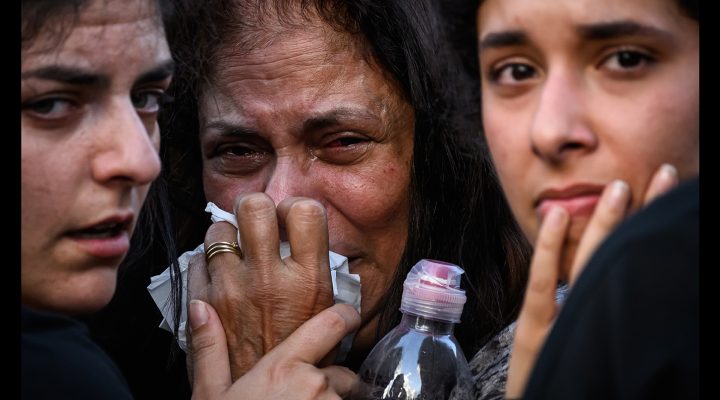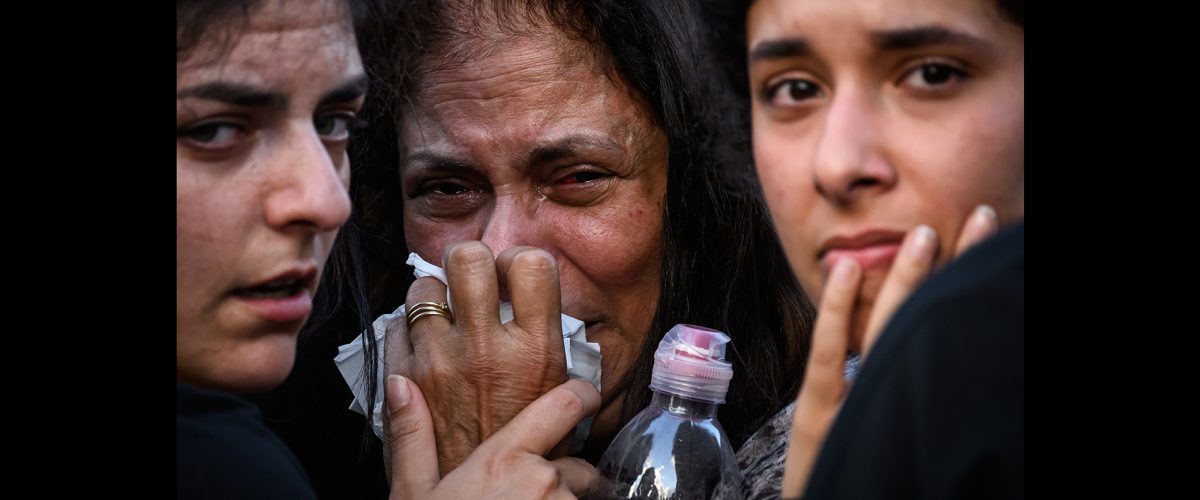The war between Israel and Hamas has been front and center over the past week. The world watched as violent terrorists shot rockets into Israel, kidnapped civilians and beheaded children in an act of barbarism the world has not seen in some time.
We’ve also all watched as Israel, supported by the West, has launched a retaliation campaign against Hamas that has resulted in unprecedented destruction of Palestinian communities and the loss of more than 2,000 Palestinians, most of whom are civilians and some of whom are children.

Brandan Robertson
I am not an expert on the Israeli/Palestinian conflict, but I have spent time in both Israel and Palestine and am close to many Israeli and Palestinian people. As I’ve watched their responses over the past week, my heart has ached and I have felt, frankly, paralyzed as I have sought to formulate my own opinion on what is happening.
I support Israel’s right to exist and believe the United States should support and defend Israel as the homeland of the Jewish people. I also know firsthand the conditions the Palestinians are forced to live in, primarily because of policies of the government of Israel, are inhumane and unjust — especially in Gaza.
In a moment as horrifying and complex as this, it has become clear the best response for me, as an American Christian, is to resist the urge to get involved in offering my opinions on the complex policies at the heart of this conflict and, instead, listen, support and pray.
“In a moment as traumatic as this, it is incumbent upon all Christians to be ‘slow to speak and quick to listen.’”
In a moment as traumatic as this, it is incumbent upon all Christians to be “slow to speak and quick to listen” (James 1:9). This is a time for us to take in as much information as we can, from both sides of this conflict, to help us understand why the Israeli/Palestinian conflict is so complex.
This is not just an issue affecting people thousands of miles away but truly a global conflict that impacts Jews and Muslims in our own lives and communities, and we owe it to them to be as informed as possible. Not so we can offer our “solutions” to the conflict, but so we can understand the deep pain and anger so many Jews, Christians and Muslims are currently feeling.
This is a time for deep listening to that pain and anger, a moment to cultivate empathy for our neighbors near and far who are suffering terribly, a moment where we must resist being pulled toward demonizing or extreme positions that will only serve to deepen the wounds millions of people are feeling right now.
We also must step up to offer support to our Jewish and Muslim neighbors, not because we agree or disagree with their perspectives on this conflict, but because this is a moment of tremendous fear for these communities as antisemitism, islamophobia and racism are flaring up and threatening their well-being.
Christians are called to imitate Christ, who used his own position of privilege not for his own benefit but to serve others. This is a moment that calls for radical solidarity across lines of political and religious difference, where we go out of our way to let our neighbors know we are here for them, we will defend them and we will stand with them against any bias or prejudice they might experience in this moment of conflict.
“Christians are called to imitate Christ, who used his own position of privilege not for his own benefit but to serve others.”
And this support should be more than mere words; it must be demonstrated through action — a willingness to call out bigotry when we hear it, a willingness to show up for our Jewish and Muslim neighbors as they gather, a willingness to use our own energy and resources to do everything we can to let them know we support them as people.
And finally, we must pray, asking God to work to bring an end to the terror and suffering of Israelis and Palestinians, to make a way out of no way to bring a peaceful resolution to this war and to give wisdom to world leaders as they seek to navigate policies that support the dignity and rights of both Israelis and Palestinians.
We have seen, time and again, how humans continue to enflame these tensions, and if there is going to be a generative path toward peace it must come from beyond human wisdom and understanding. We should find space to pray in our churches, and, where possible, with our Jewish and Muslim neighbors, as we call upon the divine to do something miraculous to bring healing and redemption from this dark moment of our history.
Regardless of what “side” you come down on in this conflict, as followers of Christ we are called to be beacons of love in the face of fear, beacons of peace in the face of conflict, beacons of neighborly kindness in the face of demonization and division. May we do all we can in the days ahead to love and support our Jewish and Muslim neighbors as we pray for a swift end to this horrendous war.
Brandan Robertson is an author, activist and public theologian working at the intersections of spirituality, sexuality and social renewal. A prolific writer, he is the author of nine books on spirituality, justice and theology, including the INDIES Book of the Year Award Finalist True Inclusion: Creating Communities of Radical Embrace. Robertson received a bachelor of arts degree in pastoral ministry and theology from Moody Bible Institute, a master of theological studies degree from Iliff School of Theology, and a master of arts in political science and public administration from Eastern Illinois University. He is currently pursuing a Ph.D. in biblical studies from Drew University. He currently resides in New York City.
Related articles:
On building walls | Opinion by Grace Ji-Sun Kim
‘I’m a Palestinian American Christian, and I don’t hear my story in any of the narratives’ | Opinion by Ghassan J. Tarazi
SBC ethics agency publishes ‘Evangelical Statement in Support of Israel’
Worldwide communion invited to Thursday Ecumenical Service of Lament over Israel and Palestine
‘Two-state solution’ was deemed less likely even before the current war between Israel and Hamas
My heart and my mind are in conflict about Israel and Hamas | Analysis by Rodney Kennedy
Violence begets violence: Hamas’ Pyrrhic victory | Opinion by Raouf J. Halaby
Here are some ways to listen to Palestinian Christians | Analysis by Rick Pidcock
In this war, there are no ‘good guys’ | Analysis by Mark Wingfield


